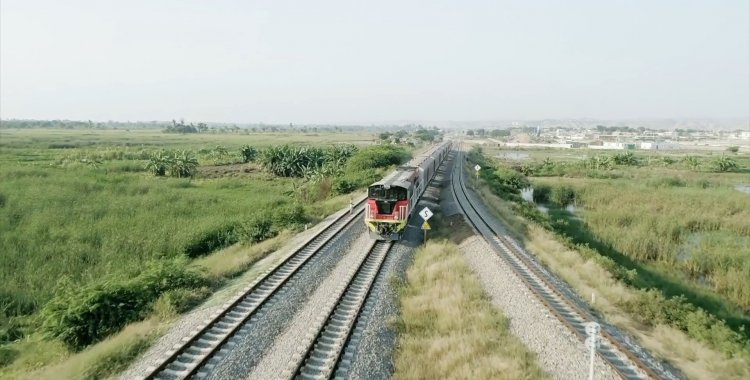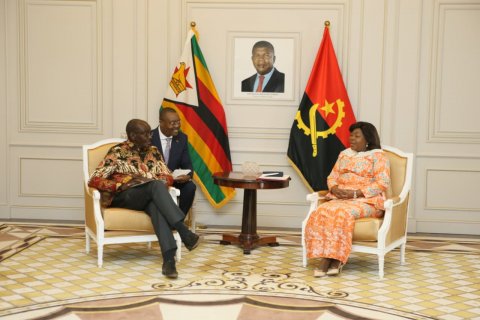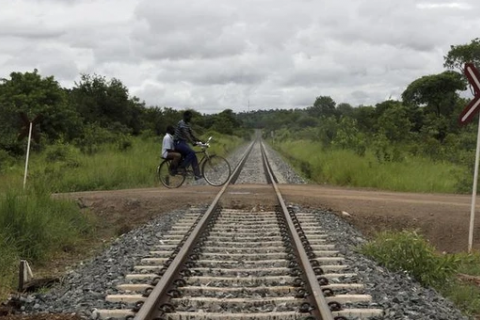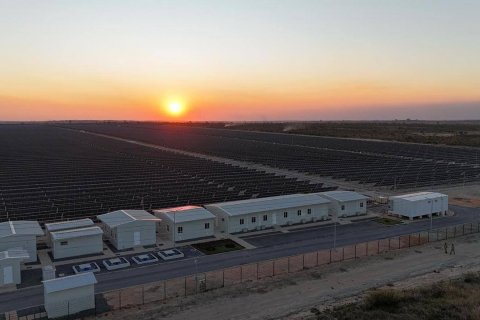"Things are happening," said Jorge Bengue, on the sidelines of a visit by a delegation of European Union (EU) ambassadors to the provinces of Huambo and Bié, which began on Tuesday and ends this Thursday.
"If before we were talking about a wish, a perspective, today we are talking about concrete things."
The visit, led by the EU delegation in Angola, covered some points in these provinces to assess the impact of the Lobito Corridor, operated by a European consortium comprising Trafigura, Mota-Engil and Vecturis, under a 30-year concession with the Angolan government.
The infrastructure includes the port of Lobito, the Benguela Railway (CFB) and the logistics terminals along the 1300-kilometre railway line that connects the Angolan coast to the Democratic Republic of Congo, passing through the provinces of Benguela, Huambo, Bié, Moxico and Moxico-Leste.
"We always think about the various transport infrastructures that are located along the Lobito Corridor, one of which, the main one, is the Benguela railway and the port of Lobito, among others, which are catalysts for development", highlighted the Secretary of State.
According to the minister, the effects of the concession are beginning to be visible on several fronts.
"Today, we are seeing agricultural production that we did not have a few years ago, which is beginning to take on a different dimension. We are having private companies beginning to make investments along the Lobito Corridor in the various segments of the economic sector", he said, reiterating: "These are projects, these are actions that are beginning to bear some fruit".
In addition to rail transport, Jorge Bengue highlighted the involvement of the European Union and other international partners in capacity-building initiatives, support for local production and financing for small producers.
"Our partner, the European Union, also has several initiatives aimed at education and training for national producers and others. We have initiatives to finance the various investments that are emerging along the Lobito Corridor, especially small initiatives in agricultural production."
According to the Secretary of State, these initial results are encouraging. "There is nothing better than a start like this," he said.
The official cited the case of avocado producers in Huambo as an example of progress in the distribution of agricultural production, as they are preparing for their first major export to Europe within the scope of the Lobito Corridor.
"We are preparing the first major export of avocados as part of the investment that a consortium of companies from the Netherlands, in partnership with the Ministry of Transport, decided to carry out in the province of Huambo, in the Cáala area," he added.
When asked about the delay in the disbursement of financing from the DFC (United States International Development Finance Corporation, an agency that supports the private sector) for the concessionaire Lobito Atlantic Railway, Jorge Bengue stated that the constraints are the result of normal procedures.
"This is not financing for the States; the entities to be financed are the private investors that are in the Lobito Corridor. Financing has its own ritual and is generally not quick," he stressed.
Despite the delay, he believes that the funds will be released. "There is a necessary work and patience, sometimes, that we have to have, because there are situations that we understand are the result of 'compliance', of criteria of the financing entities."
The Secretary of State also stressed that the most immediate impact of the project can already be measured in the lives of producers: "The fact that we had producers who did not know how to store and transport what they produced and, as a result, a very large percentage of their production was spoiled, today we can see several producers clearly assuming that they are producing more", he explained.
For Jorge Bengue, the visit of the European ambassadors reveals that the Lobito Corridor brings more than just promises: "Today, when we visit the Lobito Corridor, we do not just visit maps and intentions - we visit concrete things".







